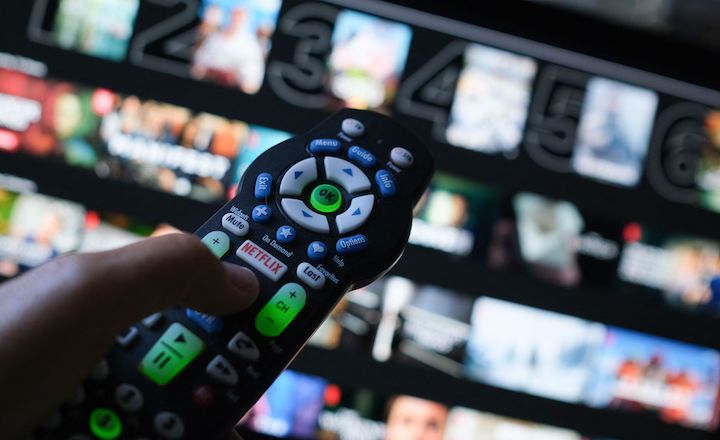If you want to understand the curious attitude of our government towards media freedom, look at two provisions in the draft Media Bill, published yesterday. One is refreshingly liberal; the other curmudgeonly and authoritarian.
First, the good news. The Bill reads the last rites over the Leveson Report of 2012. A worrying document embodying lofty patrician contempt for the popular press, this had called for highly intrusive controls over it. This included closer supervision of what journalists were allowed to do and editors to publish, an increase in damages for breach of privacy and a noticeable tightening of the dead hand of data protection on newspaper information-gathering. And, to cap it off, all papers worth the name should submit to a semi-official regulator with expansive powers to write a code of practice, fine newspapers for breaking it (even if they had not acted illegally) and impose corrections and apologies. True, Leveson reluctantly stopped short of demanding legal compulsion, but he called for none-too-subtle pressure in the shape of a punitive legal costs rule for any papers which failed to sign up (essentially making them pay the court costs of anyone who sued them, even if the claim failed).
The latter was actually enacted in law, and an officially approved regulator called Impress set up, though the heavyweight newspapers pointedly – and rightly – boycotted it, preferring the more independent Ipso. (Impress still exists, albeit mostly regulating local titles and a few small, predominantly left-wing outlets.) Thankfully the costs law was never brought into force; and now, despite periodical calls to activate it, the Media Act repeals it.
The idea of extending Ofcom’s writ as a kind of Ministry of Medical Truth to cover any large organisation beaming material to the UK is not reassuring
This not only removes a sword of Damocles hanging over the national press, but shows a welcome shift in opinion towards leaving newspapers alone and subjecting any wrongdoing to the ordinary law. True, organisations such as Hacked Off have seen this as a government bribe to the press. But since the Guardian and the Independent objected to the law on court costs just as vehemently as the Daily Mail did, and even Labour are happy with the repeal (despite their previous regular calls for it to be put into effect) there is a strong whiff of humbug here.
So far so good. But now for the bad news: having freed the written word, the Media Bill proposes a massive increase in control over the moving image. The problem, as the government sees it, is that while traditional broadcasters such as the BBC and ITV are heavily regulated by Ofcom in what they can do, say and promote, global pick-and-mix outfits like Disney+ and Netflix – which pick up millions in subscriptions that used to go to the BBC in licence fees – are not. This will not do at all, said the culture, media and sport minister Lucy Frazer, in a slightly scandalised press release. We must, she said, level the playing field, corral the foreign internet giants, and regulate their UK output in much the same way as we regulate traditional broadcast channels. This is, supposedly, to make viewers feel safe and prevent them suffering ‘harm’ from such things as ‘misleading health information’ (one of the government’s examples).
This should worry us. For one thing, it’s all very well in the rarefied air of the DCMS to talk of our world-class broadcasting, the assurance of quality its close regulation gives UK viewers, and the need to assure them that they will get a similar guarantee if they watch outliers such as Netflix instead. But back on earth, if the public are turning away in droves from our own highly regulated offerings and choosing unregulated foreign services, this might suggest that the latter are doing something right. It might even be an argument for decreasing regulation of our own broadcasters, rather than increasing Ofcom’s grip on foreign providers.
Moreover, the mention of ‘misleading health claims’ as something that needs an Ofcom crackdown should prick up some ears. Ofcom’s record here has, to say the least, not been spotless. During the pandemic, for example, it used exactly this line to enforce a pretty heavy-handed suppression of anything other than the official line on mask wearing, or Covid jabs. Indeed, it fined stations which allowed the wackier conspiracy theorists airtime at all. Quite apart from all the other restrictions proposed, the idea of extending Ofcom’s writ as a kind of Ministry of Medical Truth to cover any large organisation beaming material to the UK is not reassuring.
More to the point (however administratively tidy it might look), there is also a fundamental problem with demanding similar treatment for programmes available on demand as for traditional television. Turn on a BBC or ITV channel, and one programme automatically shades into another through the evening. In this case, there is some argument for rules to protect a family from finding itself unexpectedly watching, say, a horror film before the watershed, or content that is distressing or offensive. But not so with on-demand services such as Amazon Prime Video or Netflix: there, you choose to watch individual programmes, rather like picking out a book to read. And unless we now take the seriously demeaning attitude that viewers simply cannot be trusted to choose what is good for them, the case for regulation becomes as tenuous as that for regulating what we are allowed to read.
In short, regulating on-demand viewing is not so much a recipe for excellent television as an ego-trip for Ofcom, a censors’ charter (except for the computer-savvy who can use a VPN to bypass Ofcom entirely), and a message to British viewers that they can’t be trusted to exercise proper judgment over what they choose to watch. Frazer is generally a good culture minister; her final burial of Leveson bodes well. But here, she needs to think again.






Comments